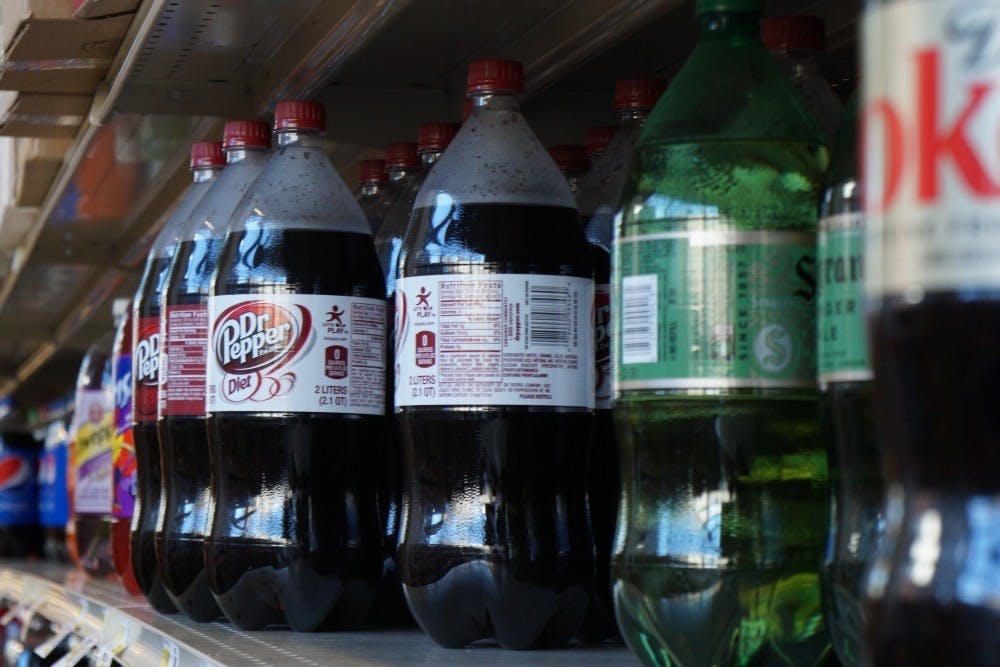
Philadelphia councilwoman Maria Quinones-Sanchez opposed the soda tax because she has a Coca Cola plant in the district she represents
Credit: Greg Boyek | Staff PhotographerStarting next year, Philadelphians who want to purchase sugary drinks may find themselves shelling out a few more coins.
On June 16, Philadelphia’s City Council passed a tax on sugary and artificially sweetened beverages, known as the “soda tax.” While Philadelphia Mayor Jim Kenney had initially proposed a tax of 3 cents per ounce, this was reduced to 1.5 cents per ounce, or a little over a dollar for a two-liter bottle. The tax is expected to bring in $91 million its first year, and will go toward funding universal prekindergarten programs. The mayor’s office has since said that some of the initial revenue will also go to other city services, like renovating the city’s parks system.
The bill passed the City Council with only four members voting against it — Republicans David Oh, Brian O’Neill and Al Taubenberger, as well as Democrat Maria Quinones-Sanchez.
“I have a Coca Cola plant in my district with 435 jobs that will be impacted,” Sanchez said. “Any time you’re looking at an industry that could potentially shut down and move across the bridge, it’s my duty to protect those jobs.”
Sanchez also criticized the tax for its disproportionate effect on poorer residents, which Wharton professor Michael Sinkinson acknowledged.
“Taxes don’t necessarily affect everyone equally,” Sinkinson said. “When you impose a consumption tax, or any sort of a sales tax, there’s concern that it might be regressive, and that it would actually have a larger effect on lower-income individuals.”
Sinkinson, who teaches Business Economics and Public Policy, added that poorer individuals were also less likely to be able to avoid the tax by purchasing drinks outside city limits.
Councilwoman Sanchez, along with fellow councilman David Oh, argued that the city’s budget already contains the funding necessary for the mayor’s intended pre-kindergarten programs without the need to enact a new tax.
“The amount of money that has been identified to us as what we need [for prekindergarten] already exists in the current budget,” Oh said. “Maybe you need about 45 million dollars to start pre-k, and we certainly have 45 million dollars extra in the budget.”
Oh called the soda tax “bad tax policy” and said that the tax created a case of conflicting incentives for the city.
“You don’t want people to drink it, [so] you’re raising the cost,” he said. “And because you’ve done that, if you’re successful, you won’t have the money to sustain your program.”
This inconsistent nature of the tax has also led to criticism. Sugarless, calorie-free diet sodas are subject to the tax, while high-calorie drinks that are at least 50 percent fruit or vegetable juice or milk will not be. Drinks where the customer adds or requests the addition of their own sweeteners will also not be taxed — which applies to many drinks at Starbucks.
“Certain smoothies [and] mocha smoothies are exempt,” Sanchez said. “[The tax] disproportionately affects poor people and exempts products that wealthy people buy.”
Perhaps for these reasons, the mayor’s office focused less on the health aspects of a decrease in soda consumption, instead presenting the tax as an opportunity to fund education for young children through universal prekindergarten.
“The tax was being sold politically as a tax to fund universal pre-k in Philadelphia," Nursing professor Karen Glanz said. "It wasn’t being sold as just a health-related tax.”
Glanz, who holds a secondary appointment in the Perelman School of Medicine, is also a senior fellow at Penn’s Leonard Davis Institute of Health Economics.
“[Healthy childhood and early childhood education] are causes that very few people can look at and say, ‘I don’t want little kids to be educated,’” she said. “It’s much easier for people to argue against a public health measure, because they can interpret it as ‘oh, you’re trying to take away my free choice.’”
But even the proposal for universal prekindergarten has not received universal support.
“What is pre-k? You can’t tell me what it is in the sense of what the city’s doing, I couldn’t tell you what it is, because the mayor hasn’t said what it is,” Oh said. “They’re working on it now.”
“We knew from the beginning that although it was called universal pre-k, that it was not going to be universal,” he continued. “We could not afford universal pre-k. So the question is, who is it for? And, when will they receive the services?"
While the mayor’s office has not released specific plans for how the prekindergarten program will be structured, education advocates are hopeful that instituting such early childhood programs will improve student outcomes.
“From a broad perspective of what we know about the social determinants of health … education and a decent living income are very important from the early stage on up,” Glanz said. “There are quite a few studies now that [show] things like pre-school education … rates are associated with better quality of life and better health later in life.”
The Daily Pennsylvanian is an independent, student-run newspaper. Please consider making a donation to support the coverage that shapes the University. Your generosity ensures a future of strong journalism at Penn.
DonatePlease note All comments are eligible for publication in The Daily Pennsylvanian.







